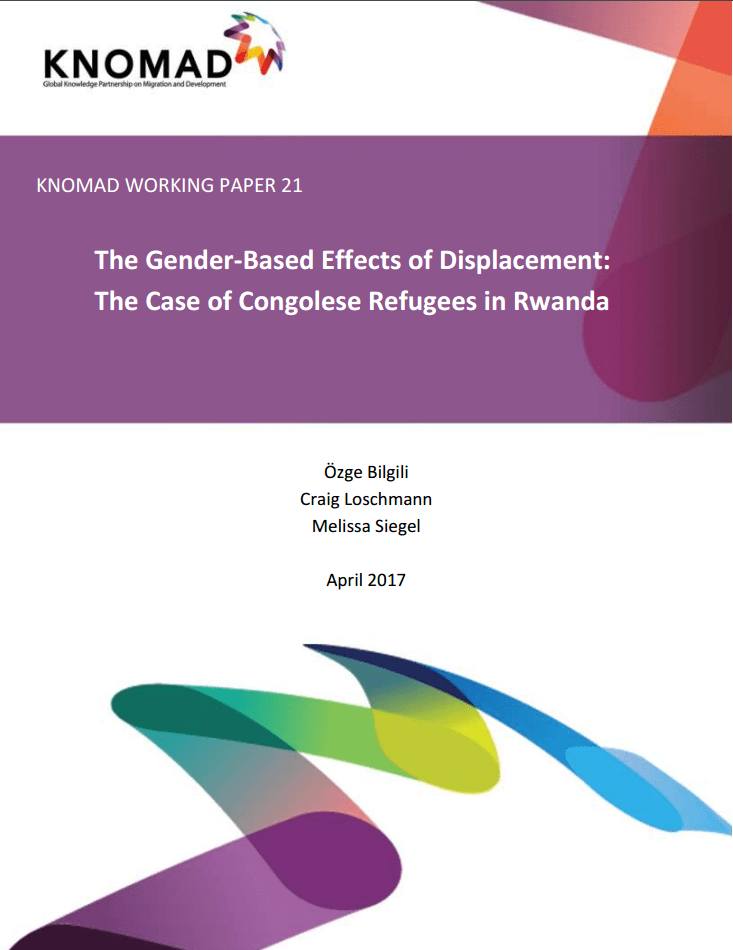
The Gender-Based Effects of Displacement: The Case of Congolese Refugees in Rwanda
This paper studies the effects of displacement in the case of Congolese refugees in Rwanda, with an explicit focus on gender. The analysis looks across a range of indicators related to well-being that examine labor market participation, education, social networks, and security. In addition, it examines certain household-level measures concerning food insecurity, subjective poverty, and subjective economic situation. The study contributes to the existing literature by not only detailing differences in well-being between refugees and the local population along gender lines, but also by exploring variation in experiences among refugees themselves. It also pays particular attention to female-headed households, which are commonly recognized as having a high risk of vulnerability. As working-age refugee women are less likely to be economically active in comparison with both local women and refugee men, vocational training programs that target female refugees may confer significant gains. The higher vulnerability of women in the refugee camps may be tackled by fostering socioeconomic inclusion and reducing dependency on humanitarian aid. As female-headed households in remote camps are particularly vulnerable to food insecurity, enabling a marketplace within the camp itself for small business development and trade, while also connecting it to the nearest commercial town, may help stimulate local economic interaction. In addition, incorporating women into the planning, organization, and management of refugee camps as well as local associations should be a priority as such steps are crucial for empowerment and self-determination.

